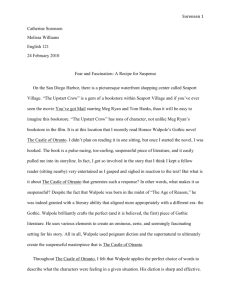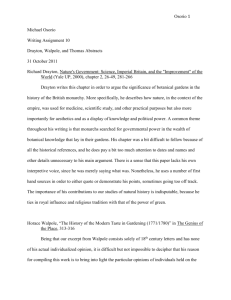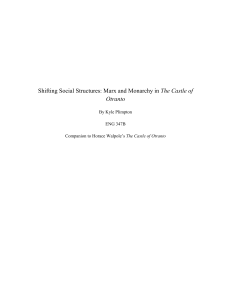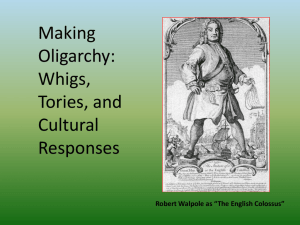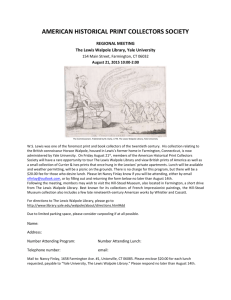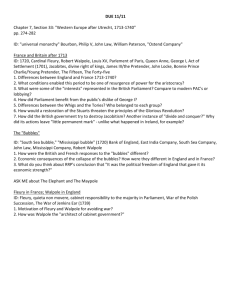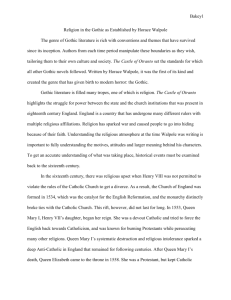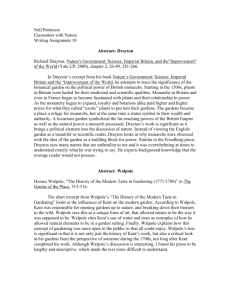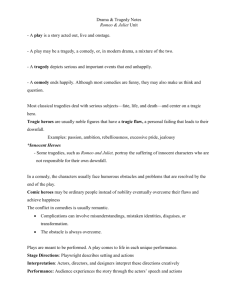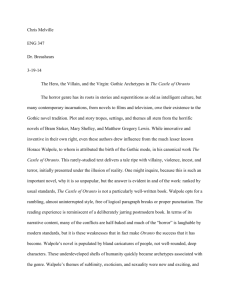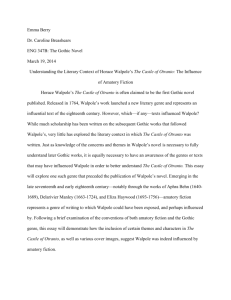Otranto and Shakespeare
advertisement
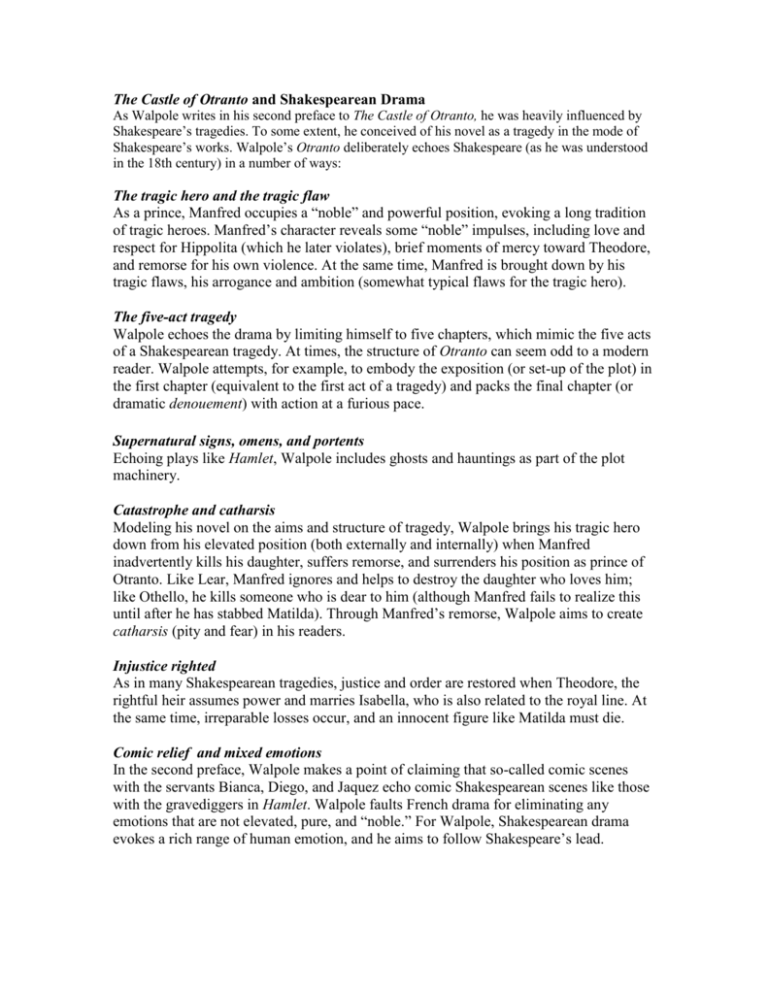
The Castle of Otranto and Shakespearean Drama As Walpole writes in his second preface to The Castle of Otranto, he was heavily influenced by Shakespeare’s tragedies. To some extent, he conceived of his novel as a tragedy in the mode of Shakespeare’s works. Walpole’s Otranto deliberately echoes Shakespeare (as he was understood in the 18th century) in a number of ways: The tragic hero and the tragic flaw As a prince, Manfred occupies a “noble” and powerful position, evoking a long tradition of tragic heroes. Manfred’s character reveals some “noble” impulses, including love and respect for Hippolita (which he later violates), brief moments of mercy toward Theodore, and remorse for his own violence. At the same time, Manfred is brought down by his tragic flaws, his arrogance and ambition (somewhat typical flaws for the tragic hero). The five-act tragedy Walpole echoes the drama by limiting himself to five chapters, which mimic the five acts of a Shakespearean tragedy. At times, the structure of Otranto can seem odd to a modern reader. Walpole attempts, for example, to embody the exposition (or set-up of the plot) in the first chapter (equivalent to the first act of a tragedy) and packs the final chapter (or dramatic denouement) with action at a furious pace. Supernatural signs, omens, and portents Echoing plays like Hamlet, Walpole includes ghosts and hauntings as part of the plot machinery. Catastrophe and catharsis Modeling his novel on the aims and structure of tragedy, Walpole brings his tragic hero down from his elevated position (both externally and internally) when Manfred inadvertently kills his daughter, suffers remorse, and surrenders his position as prince of Otranto. Like Lear, Manfred ignores and helps to destroy the daughter who loves him; like Othello, he kills someone who is dear to him (although Manfred fails to realize this until after he has stabbed Matilda). Through Manfred’s remorse, Walpole aims to create catharsis (pity and fear) in his readers. Injustice righted As in many Shakespearean tragedies, justice and order are restored when Theodore, the rightful heir assumes power and marries Isabella, who is also related to the royal line. At the same time, irreparable losses occur, and an innocent figure like Matilda must die. Comic relief and mixed emotions In the second preface, Walpole makes a point of claiming that so-called comic scenes with the servants Bianca, Diego, and Jaquez echo comic Shakespearean scenes like those with the gravediggers in Hamlet. Walpole faults French drama for eliminating any emotions that are not elevated, pure, and “noble.” For Walpole, Shakespearean drama evokes a rich range of human emotion, and he aims to follow Shakespeare’s lead.
